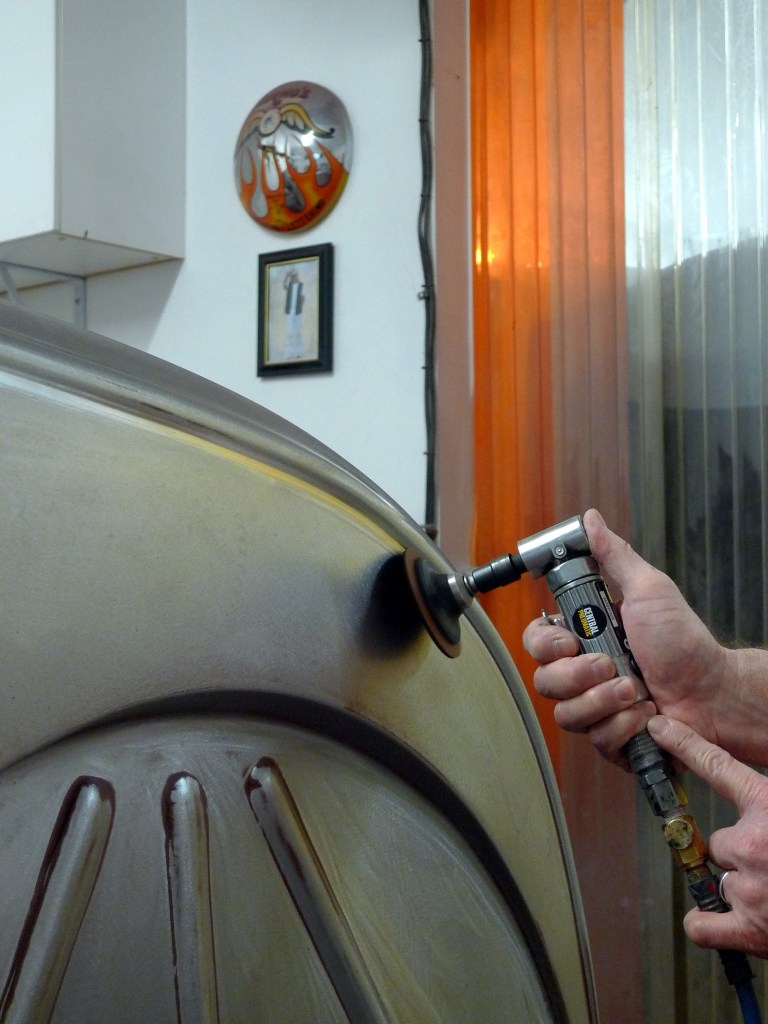Rev ‘Em Up ‘n’ Run ‘Em Dry: Brutal break-in for new pneumatic tools
By Rotten Rodney Bauman
Let’s be honest here. Do y’all ever google yourselves? Oh, it’s okay. It’s nothin’ to be ashamed of. It’s a pretty good way for us to keep tabs on what we’ve been up to and I’ll confess; I google myself too. Why just the other night for example; I got a little bored while staring blankly at the screen, so I decided I’d—you know—google myself. Now try to imagine my surprise as I suddenly discovered that I’d been adopted as poster boy for a major tool purveyor.
Why was I chosen for this honor? Was it from professional prowess? Perhaps my rugged good looks? Nope. This actually stemmed a magazine tech article in which I’d made mention of a certain tool as well as its source. In turn, a portion of my story was repackaged and put to work for marketing purposes.
I’m pretty cool with that. I’ve read the fine-print and I do understand that relationships ‘tween the larger publishing companies and advertisers must be maintained, but on a personal note, there’s more to it. Quite honestly, I’m flattered by my recent google discovery. So, what’s in it for me? Well, other than fifteen minutes o’ fame, nothin’. Even as poster boy—no special discounts. I do believe I have the attention of the tool company’s blog guy, however, which sort of gets me to thinkin’—perhaps I could do a little more—as a torture-testin’ product evaluator!
For years I’ve put tools to the ultimate test, although ‘til now it’s gone undocumented. As a real-life automotive painter, I’m against lubrication of pneumatic tools. Pneumatic tools have exhaust ports which will expel trouble-makin’ lubricants onto work which should be kept surgically clean. If lack of lubrication shortens the life of my pneumatic tools, so be it. A replacement tool is cheap compared to a costly redo.

When staples like these pneumatic, angle die grinders go on sale, we’ll buy extras. New pneumatic tools are considered oily from the assembly line, so ‘round here steps must be taken before paint shop use begins. We are about—to blow one out, but first let’s examine some nipples.

Quick-connect nipples come in a variety of shapes and sizes, but they’re not all created equal. Here are just a few examples: The nipple on the far-left is obsolete, but the three styles in the center are commonly used today. On the far-right we have the high-flow-style nipple, which has gained popularity with users of HVLP spray equipment.

During the course of laboratory testing, this new pneumatic tool shall be shown no mercy. For maximum airflow the high-flow nipple has been installed with an industrial gauge that will provide accurate readings under extreme pressure. Of course the gauge is overkill, but let’s use it for a dramatic effect.

Now since we’re plannin’ to spin this little tool just as fast as it’ll go, we don’t want its chuck just rattlin’ around loosely, do we? Perhaps we’ll simulate a flywheel effect by tightening in this heavy rotary bit.

Dangled from our engine hoist, a bottomless compressed gas cylinder should offer protection for the operator. For the tool below, however, this could be the “dome of doom.” This oil-expelling blowout procedure calls for a stuck throttle. A little green zip-tie should do the trick.

After less than a minute of WFO screaming, the tool has come to an abrupt and disappointing halt. Expecting to see parts scattered, we’re about to raise the dome.

Upon visual inspection we see that our zip-tie has vibrated loose from the tool’s trigger, so a masking tape backup is applied. Testin’—er, oil-expulsion, will now resume as planned.

Our new angle die grinder continues to run on the proverbial redline—so far, without exploding. Actually at this point we’re beginning to feel sorry for our air compressor. For that reason only, we’ll take this in sessions with breaks in between.

There comes a time to call it. At this stage we’re satisfied that assembly-line lubricant has been expelled by way of this tool’s exhaust. From here the tool’s exterior will be thoroughly cleaned before it’s put into service—dry and never to be oiled again.

Granted, it stands to reason that dry operation would shorten the life of such pneumatic tools. Even so, we run ‘em dry. In the paint ‘n’ body department cleanliness is paramount. We just don’t want oil near our work. Compared to any redo, replacement tools are cheap. This one was on-sale at that tool place—Harbor Freight.
Sources:





